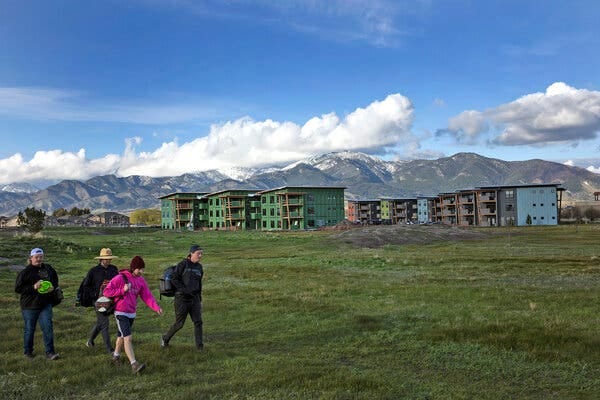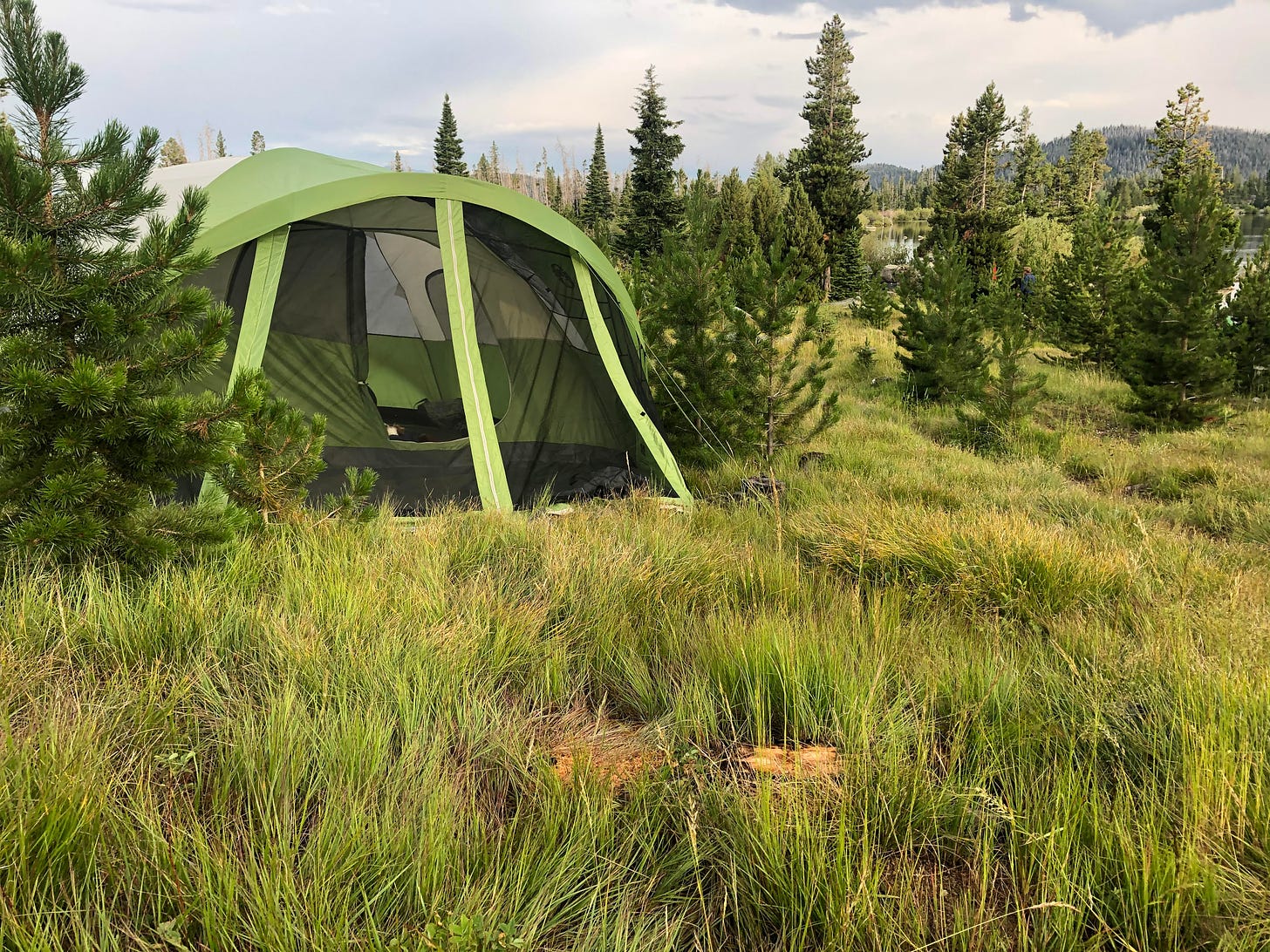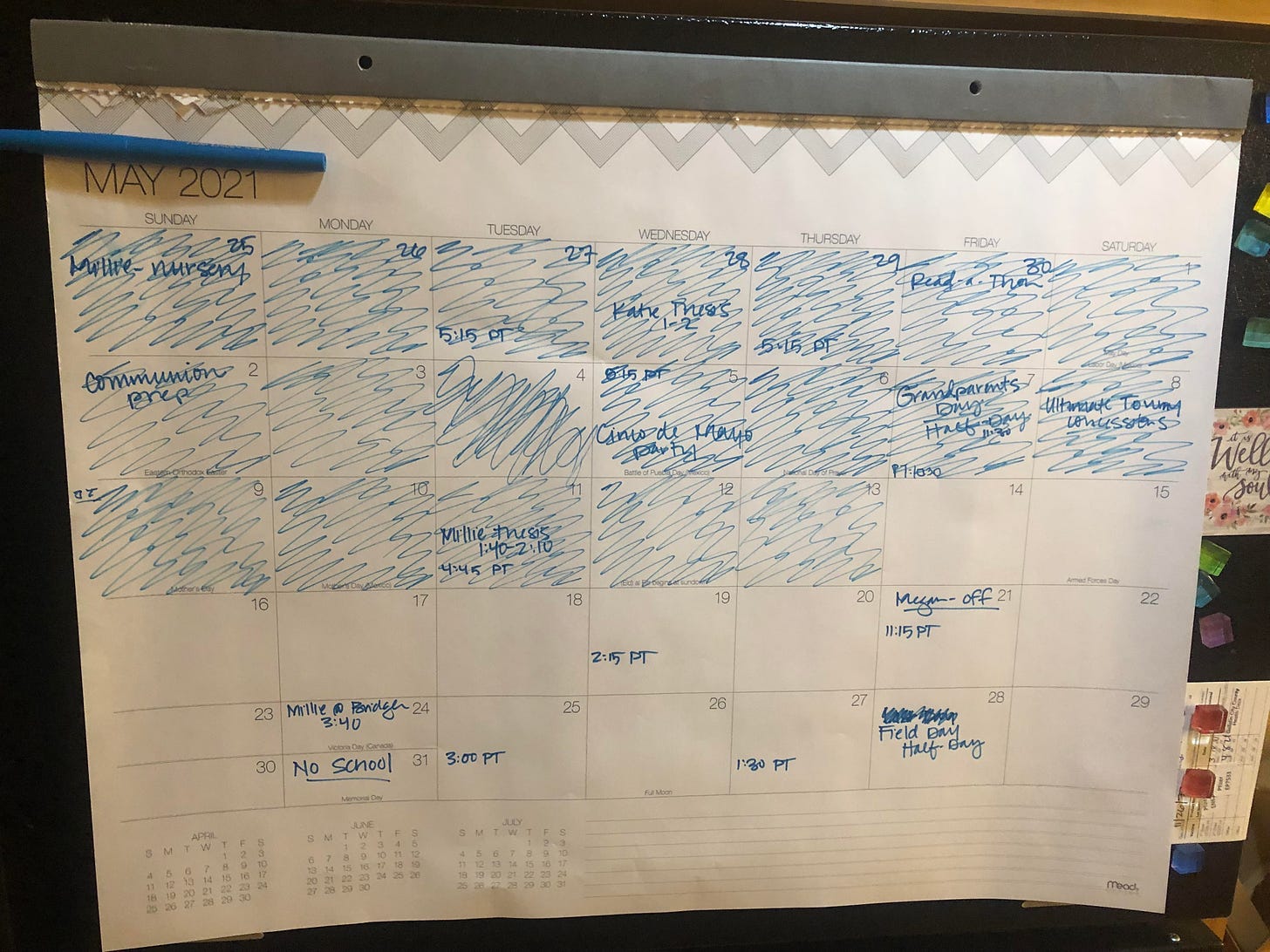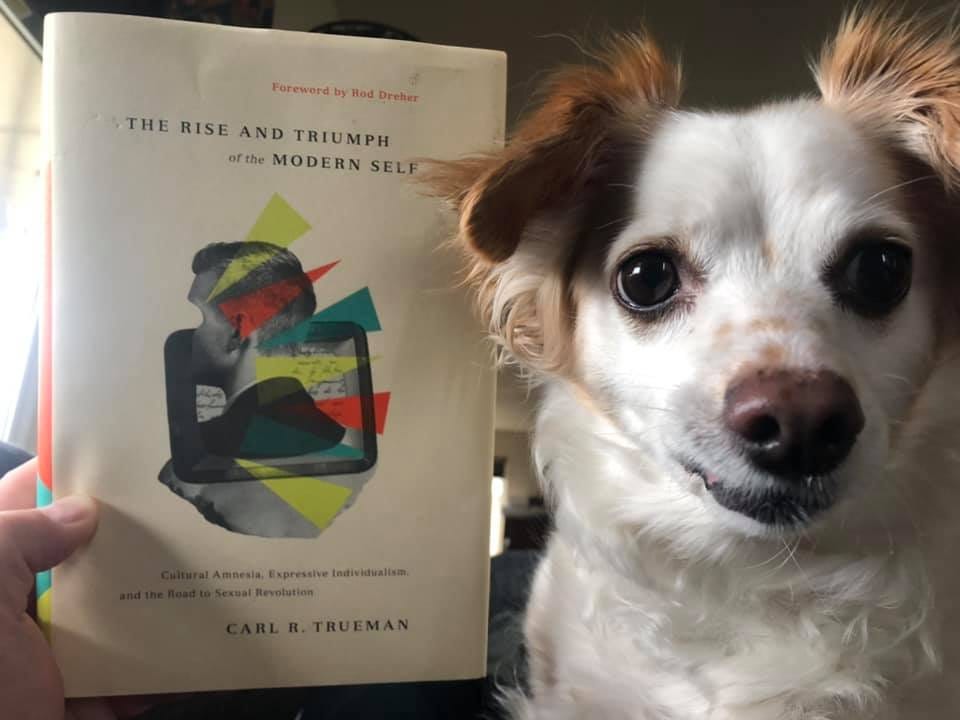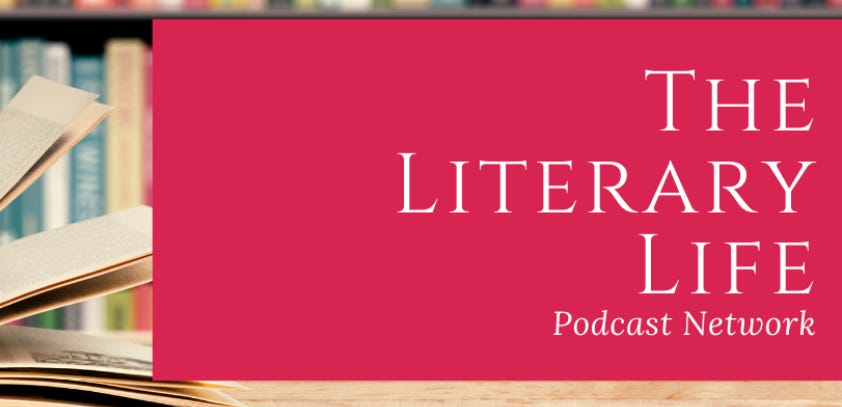Dear Reader,
This week’s Second Drafts marks the twentieth in a row since starting on January 1. I’ve created a brief 10-question survey I’d love for you to complete to let me know how it’s going.
I know taking surveys is not everybody’s cup of tea, so let me sweeten the deal: in the spirit of transparency, if you complete the survey, you’ll get to view all the other responses from my readers (you might keep this in mind when you fill it out, though it’s completely anonymous).
In the meantime, here’s the reader feedback from last week’s newsletter:
“Thanks for including me on your emails; I try to set aside time to take them in. You always make me think, and it’s clear that you put a lot of energy into your weekly messages. I don’t always agree with you, but mostly I seem to. But you make me consider things, and I appreciate that.”
This reader shared his honest struggles:
“I'm sure our paths are quite different, but I relate to what you are saying. I thought I was going into Christian music...didn't happen. I had an elaborate plan to go to medical school and work overseas...did not get accepted and did not re-apply. I would never disrespect farming, but the thought of spending the remaining quality years sailing the seas of dirt and walking around in cow poo...just leaves me always searching. There are times I'll be out in the middle of nowhere on a tractor mowing a pasture or something...I'll shut off the tractor and just sit there in the middle of a field in silence...Is this it? Is this what I am here for? But to end on a positive, I am blessed beyond measure in terms of family, as I know you are.”
This reader was brief but content:
“A lot of your last email resonated with me. There’s a profound joy in releasing dreams and enjoying what is. As a reforming perfectionist, average isn’t my preference but it’s my reality and there’s a lot to enjoy about it.”
And this reader got me right in the feels:
“Each week I look forward to unwrapping the gift that comes via the inbox...after reading this week's entry I have a slight upward curve in my smile. Simple, real, and honest. Thank you for reminding me that God is truly in the details - He does not look for those who are the loudest, prettiest, kindest, smartest, or best at anything. He is simply looking for those who are willing to follow. To listen…Psalm 46:10. My heart is filled with love and wonder for the way God speaks. Thank you for being a voice.”
As I said when I started the newsletter 20 weeks ago, I value my readers and what you think. Would you complete the survey and help me make Second Drafts more worth your while?
As always, thanks for reading.
Craig
Hot Takes
“Did COVID-19 Leak from a Wuhan Lab?” - I’ve read multiple sources now that there are new questions about the origin of the coronavirus, and there’s one report - well-written and legitimate - in the center of all of them.
“In an extensive analysis at The Bulletin of the Atomic Scientists published last week, science journalist Nicholas Wade evaluates the likelihood that the virus has a natural origin versus the possibility that it escaped from the Wuhan Institute of Virology. Noting that ultimately ‘neither the natural emergence nor the lab escape hypothesis can yet be ruled out,’ Wade nevertheless concludes that the ‘proponents of lab escape can explain all the available facts about SARS2 [COVID-19 virus] considerably more easily than can those who favor natural emergence.’”
In his report, Wade takes an Occam’s Razor approach to the two most prevalent theories - the first, that the virus was somehow transmitted from bats to humans; the second, that there may have been a more sinister plot behind a Wuhan lab leak into the public - and looks for the simplest explanation.
“I’ll describe the two theories, explain why each is plausible, and then ask which provides the better explanation of the available facts. It’s important to note that so far there is no direct evidence for either theory. Each depends on a set of reasonable conjectures but so far lacks proof. So I have only clues, not conclusions, to offer. But those clues point in a specific direction. And having inferred that direction, I’m going to delineate some of the strands in this tangled skein of disaster.”
One of Wade’s critiques is initial discussion of Wuhan origins got short shrift:
“From early on, public and media perceptions were shaped in favor of the natural emergence scenario by strong statements from two scientific groups. These statements were not at first examined as critically as they should have been…They were assuring the public of facts they could not know for sure were true.”
But according to Wade, it may not be that China is the only one responsible for so-called “gain-of-function” experiments:
“If the case that SARS2 (coronavirus) originated in a lab is so substantial, why isn’t this more widely known? As may now be obvious, there are many people who have reason not to talk about it. The list is led, of course, by the Chinese authorities. But virologists in the United States and Europe have no great interest in igniting a public debate about the gain-of-function experiments that their community has been pursuing for years.”
This last part is what scares me. Working in high-tech, I’ve heard the stories and read the government communiques about China’s less-than-ethical practices in the scientific and business worlds. However, let’s not pretend for a minute the U.S. doesn’t have its own labs working - offcially or otherwise - on science like this. While we may be Americans, we’re also a nation that worships power - even power more ultimately destructive to humanity than a nuclear bomb.
If Michael Crichton were still alive, he’d be all over this stuff.
“Elizabeth Bruenig to Join The Atlantic as a Staff Writer” - Former Washington Post writer Elizabeth Bruenig is about to become former New York Times writer Elizabeth Bruenig as she takes her talents (a la Lebron) to The Atlantic.
“In a note to The Atlantic’s newsroom today, executive editor Adrienne LaFrance and Yoni Appelbaum, the senior editor who oversees the Politics, Ideas, and Global sections, wrote: ‘Many of you are familiar with Liz’s work, and so you know that she is a rare talent, a brilliant and fearless writer and thinker who runs toward complexity. She is the sort of journalist whose curiosity, intelligence, and eclectic interests make her a great fit for The Atlantic.’”
Agreed. I follow Bruenig on Twitter and have been a big fan of her writing for some time now (her recent Mother’s Day essay for the Times was outstanding), even subscribing for a few episodes of her and her husband’s podcast, “The Bruenigs,” until I got perturbed that they - self-proclaimed progressive democratic socialists - are unironically raking in upwards of $12K a month from 2,800+ monthly subscribers at $5 a pop in addition to what they make in their elite gigs as columnist and thinktank founder.
Bruenig is only 30, was nominated for a Pulitzer Prize (and deservingly so) at 27, and is from Texas of all places (they now live in Connecticut). She traditionally chooses to stay at home with her two daughters (third child on the way) and can because of what she does. But she is also as far left (though surprisingly pro-life) as they come politically and theologically (Catholic), curses like a sailor, and is described as “the most prominently placed of a small but increasingly visible group of young writers unabashedly advocating for democratic socialism.”
She’s definitely one to follow and read for many reasons…but with discernment.
“My Beloved College Town Has a Problem: It’s Too Popular” - In a bit of an over-written piece with an axe to grind, Sara Vowell, a Montana State University graduate and convocation speaker last fall (she also voiced the Violet Parr character in The Incredibles movies) wrote an opinion column in the New York Times about the gangbuster growth of the town we’ve called home for six years.
“Bozeman is going to need more waitresses and bike mechanics, not fewer. Where are they supposed to live? Farther and farther outside the city limits, in condos built on the ruins of some dead Dutchman’s farm, out past the headwaters of the Missouri, where Treasury Secretary Albert Gallatin’s name was bestowed upon this valley’s river by Lewis and Clark — if anyone’s to blame for this mess, it’s those two.”
Culpability for the Corps of Discovery aside, Vowell’s not wrong that Bozeman’s reach has exceeded its grasp when it comes to keeping the small town feel of 20 - or even 10 - years ago (or so I’m told). While she gets most of the facts right and makes some good observations along the way, her inner-Violet comes out a bit whiny. This is just what happens when people move to the mountains and meet up with an already-in-place housing inventory shortage (we were lucky to find a place to rent in 2015).
“In the last year, according to the Gallatin Association of Realtors, the median single family home price in the county shot up more than 45 percent, to $704,750 from $485,000. The competition is so cutthroat that Sean Hawksford, who operates a local construction business, stood on Main Street in February wearing a handmade cardboard sign that said, “Please sell me a home.” (The stunt worked, and he and his pregnant wife, Jessica, just closed on a four-bedroom.)
We actually go to church with the Hawksfords, so we were glad for them, but they’re the happy exception to the discouraging rule of what’s going on here and in other parts of the country. My friend, Seth Hurd, wrote about this in his own Substack newsletter called The Five a few weeks ago and made a lot of sense:
“This is nothing more than my opinion from talking to professional contacts in New York and San Francisco who chose to move elsewhere, but I believe that the excitement and sizzle of major cities was taken away during the COVID lockdowns and forced many to confront the transient nature of big city life.
Sure, there’s always a new restaurant, new bar, cool theater show or band to see…but your friends are always moving to better neighborhoods or other cities and most people are without the support of blood relatives or other longstanding connections to help navigate the bumps and bruises of life. Stack on the cramped housing and headaches of urban density, and it’s not surprising remote workers are finding smaller cities and towns refreshing.
This is my sense as well. People are leaving cities and states not because they’re sick of a virus, but because they’re sick of what the virus exposed where they were. In fact, my home state of Illinois is so desperate to stop the migration that they’re offering to pay off up to $40,000 of student loans to help you buy a house (never mind the fact that in 2020, Illinois’ state and local tax burden ranked the highest in the nation). Folks fleeing government bureaucracy, high tax rates, and increasing crime rates have to go somewhere, and Montana can be an appealing option (though as the bumper sticker says, “Montana is full. Try North Dakota.”).
The Hassle & Hope of the Summer Calendar
For the past several weeks, Megan and I have been promising to plan our summer - she gleefully, I dreadfully. I realize some of you did this at the turn of the new year (or maybe after returning from Spring Break in hopes of a soon-to-come sequel), but we’ve never been great at long-term calendar planning, and I’m probably the one to blame.
When it comes to summer planning (and holiday planning in general), I’m always more resistant. With regard to summer, my hesitation has roots in two learned rationales:
First, growing up the son of a farmer, summer meant work - bean-walking, straw- and hay-baling, field-mowing, hog-tending, etc. - but because of the weather, the livestock, and Little League baseball schedules, you never really knew what week-to-week plans were going to be during the day. In addition, since I was also involved in summer theater five nights a week (yes, not your normal farm boy hybrid, I admit), it didn’t make sense to make plans in advance.
Second, growing up the son of a teacher, summer was an invitation to simply enjoy not having to do what had been required during the school year. Sure, there was plenty of work to do on the farm, but that didn’t mean there weren’t rainy days to read what I wanted to, or Sunday afternoons to spend hours listening to music, studying album liners, or occasionally being social. Again, very little of this required planning; usually, it meant just being available.
I think this idea of just being available is why I struggle with summer planning. I look at the months of June, July, and August, and all I want to do is…nothing. Some of this goes back to when I was a teacher myself (which, with regard to summers, was a lot more glorious in terms of available time than when I was a headmaster); some of this is my natural resistance to avoid an over-planned summer, which I’ve seen too many families pay for when just before school starts they’re completely exhausted. As a friend of mine says, “No good vacation goes unpunished,” and because I happen to believe the truth of that, I find myself rarely wanting to take one.
Megan, on the other hand, loves to plan the summer. Growing up with parents who worked for companies that allocated set weeks for vacation, her family made the most of them (and then some): Walt Disney World, Hawaii, Washington, D.C. (these were the biggies), with smaller trips to places like Branson, MO, Eureka Springs, AR, and others during alternate summers. As a result, she loves her some summer travelin,’ which makes things interesting when we talk about the calendar mid-May (which we were to do together Wednesday night, but I chose to protest-write this article instead).
On Numbering Our Days
The idea of “numbering our days” comes straight out of Scripture; to what end, however, is probably different than how we think about making summer plans:
“So teach us to number our days
that we may get a heart of wisdom.”
Psalm 90:12
When was the last time we sat down with a beautifully empty summer calendar and asked ourselves how to best plan those three months, so that by their end we would have grown in wisdom? Sounds crazy, doesn’t it?
Yet this anticipation of growth is what the Psalmist seems to be getting at in Psalm 90:12. We shouldn’t make plans to make the most of the calendar; we should make plans to make the most of us - in our person, our character, and yes, our wisdom.
Douglas McKelvey, in the first volume of his excellent Every Moment Holy writings, offers “A Liturgy for Leaving on Holiday” to pray in preparation for vacating the premises. The prayer is lengthy, so I’ll refrain from printing it in its entirety, but listen to how these passages get at the idea of numbering our vacation days for purpose:
“Prepare our hearts to revel in new exploration
of cities not our own,
and of landscapes less familiar.
Along our way, in such places
whose contours you deliberately created,
may we pause to savor the evidences
of your diverse imagination
expressed in glories of scenery,
and in an artistry of peoples and cultures.In our days away let us play
together. Let us laugh together.
Let us be moved to speak
such meaningful words
as ought to be spoken
among family and friends.
Let us linger long at tables and drink deeply
of one another’s company, enjoying each
for who they are with the steady pressures
of our ordinary days now lifted.Bless our journey and our arrival,
Bless our days spent away.
And bless also our eventual passage home, that
we might return as those who have been revived,
with hopes resurrected,
delight restored,
hearts readied again for
forward movement into life,
strength renewed to shoulder once more
the meaningful labors assigned to us
in this season.You are our rest, Jesus.
May this vacation serve your holy purposes.
May the deep enjoyment
and the grand adventure of it
stir within us eternal longings,
whetting our anticipation
of that best holiday celebration
that will one day
encompass all days,
and all of heaven
and all of earth.Amen.”
Any of those ends make it onto your summer calendar? Maybe, maybe not. The point is that it’s only mid-May; we’ve still got time to take another run at, well, time.
Calendar as Eschatology
A few weeks ago, when Megan and I first started teasing each other with the idea of doing some summer planning (we didn’t), she made a comment that stuck with me as I was thinking about this week’s topic. Keep in mind she had just finished her eighth month of teaching 20 first graders in the beginning of May when she said,
“If I just get stuck in this week of school, it gets pretty discouraging. But if I look ahead, I can make it through. I think that’s why I keep the physical calendar on the refrigerator. I can cross off the days when they’re done and look ahead to ones still to come. I can put stuff on the calendar - a day, a week, a month ahead - and it gives me hope for where I am now. It’s kind of how we should live, I guess - with the hope of days to come informing the trials of the day we’re trying to get done.”
I’m not sure there’s a better example of Christian eschatological (“having to do with end things”) thinking, as our promised future informs our given present. It reminds us of when we are in the biblical narrative of Creation, Fall, Redemption, Consummation (hint: we’re in the “now and not yet” of Redemption; Christ’s Consummation is on the way), which renews our hope that we’ll make it through.
So what does any of this look like for the Dunhams this summer? I’m not really sure.
I want to think more about the idea of numbering our days and planning the summer for a purpose of wisdom. I want to pray more frequently McKelvey’s liturgy, asking God to shape our vision for how this summer might come to mean more than previous ones have. Finally, having done some of this, I want to put some dates on the calendar by faith and trust that doing so will be about more than just blocking time; it will be about truly redeeming it - and us in the process.
Got any summer plans to gain a heart of wisdom? I welcome your ideas.
Post(erity): “What I’ve Yet to Learn on Summer Vacation”
Each week, I choose a post from the past that seems apropos of something (of course, you’re always welcome to search the archives yourself whenever you like).
This week’s post, “What I’ve Yet to Learn on Summer Vacation,” comes from June 23, 2013, and is a variation on the theme of this week’s feature article. An excerpt:
“I remember one year before we had kids, Megan and I got a phone call from a timeshare company inviting us to make a trip from Colorado Springs to Pagosa Springs for a free weekend getaway if we sat through their presentation. We went, but the only thing I remember from the time was the company representative asking me how ‘committed’ we were to ‘vacation.’ Committed to vacation? As a farm kid, I had never heard those words used in the same sentence before.”
Peaches’ Picks
Having written extensively about it a couple of weeks ago after taking part in a Zoom call with the author, our copy of The Rise and Triumph of the Modern Self by Dr. Carl F. Trueman finally came in. Peaches is particularly excited for the printed version.
Friends Doing Cool Things
A few weeks ago, a friend and I were chatting online when she asked me if I had ever listened to The Literary Life podcast? I hadn’t, I said, as I really don’t have a commute long enough to need to (plus, podcast time is read time.) I then asked her what she liked about it, to which she responded:
“I listen to this one while driving for sure, but also while doing chores and other normally mindless things. I feel like I am a part of their book chats and learn so much background information. It inspires me to read more books, and often ones that I would not check out. I think you would love their broad podcasts about why we read old books and why we read fairy tales. There are also book/poem/essay specific podcasts. A friend introduced me to it, and I love it!”
I pulled up the website, hit play on the latest podcast, and lo and behold found myself listening to the often imitated, never duplicated Thomas Banks (along with his wife Angelina), the former with whom I had co-labored here in Bozeman. The conversation was lively, the observations fresh, and I quickly discovered why my friend liked it so much.
If you’re in the market for a new podcast, check out The Literary Life. Recommended.
Fresh & Random Linkage
“Getting Off the Trolley: Jazz Formation for Modern Ethics” - I can pretty much guarantee you’ve never thought of virtue ethics in this way. Great piece in Modern Reformation written by my friend and former colleague, Dr. David Wilmington.
“Chick-fil-A is Facing a Sauce Shortage, and People Are Losing Their Minds” - As so they should.
Why Subscribe?
Why not? Second Drafts is a once-a-week newsletter delivered to your inbox (you can also read it online or through your RSS reader) and it’s totally free.)
Keep Connected
You’re welcome to follow me on Twitter.







